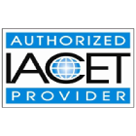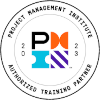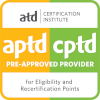HRCI
HR Ethics Certificate
HR Ethics Certificate
Regular price
$808 USD
Regular price
Sale price
$808 USD
Unit price
per
Couldn't load pickup availability
Ethics in HR isn't just a choice, it's a responsibility. Dive deep into the moral aspects of HR, and learn how to build a trustworthy, ethical workplace. Don your thinking cap and let's get ethical, the nerdy way!
Course Duration:15 hours
Credits:
CEU Credits: 0.3
AMA PCM CEU Credits: 0
PDU Credits: 0
HRCI Credits: 0
SHRM Credits: 3
CFRE Credits: 0
ATD CI Credits: 3
ACE Credits: 0
This course provides an introduction to business ethics, laying a foundation for how the study of right and wrong can (and should) shape the way organizations conduct business. While everyone within an organization is responsible for upholding high ethical standards, this course will focus specifically on the role that human resources professionals play in establishing and maintaining an ethical culture within an organization. The course addresses the importance of a code of conduct and professional and legal standards within the business organization. It lays out different ethical systems and how they provide frameworks for making ethical decisions.
Credits:
0.15 CEUs 2
ATD CI Credits 1.5
PDUs 1.5
HRCIs 01.5 SHRMs
This course provides an introduction to business ethics, laying a foundation for how the study of right and wrong can (and should) shape the way organizations conduct business. While everyone within an organization is responsible for upholding high ethical standards, this course will focus specifically on the role that human resources professionals play in establishing and maintaining an ethical culture within an organization. The course addresses the importance of a code of conduct and professional and legal standards within the business organization. It lays out different ethical systems and how they provide frameworks for making ethical decisions.
Credits:
0.15 CEUs 2
ATD CI Credits 1.5
PDUs 1.5
HRCIs 01.5 SHRMs
Credits:
0.15 CEUs 2
ATD CI Credits 1.5
PDUs 1.5
HRCIs 01.5 SHRMs
HR Ethics Series: Ethical Decision Making
Business leaders, managers, and staff at all levels of an organization will face decisions in their pursuit of moving the business forward—however, some decisions may be easier to navigate than others. When faced with a situation where no clear answer rings out, how do you decide on the best course of action? This course introduces learners to the principles and processes involved in making ethical decisions—that is, making decisions that are based on close examination of different ethical frameworks, the notion of right and wrong, and moral standards. This course pays special attention to situations within the realm of human resources, where upholding an ethical approach to decision making is crucial.
Credits:
0.15 CEUs -2 AMA PCM CEUs 2
ATD CI Credits 1.5
PDUs 1.5
HRCIs 01.5 SHRMs
Credits:
0.15 CEUs -2 AMA PCM CEUs 2
ATD CI Credits 1.5
PDUs 1.5
HRCIs 01.5 SHRMs
HR Ethics Series: Theories of Ethics
Ethical dilemmas confront those in business with the fundamental question: "What's the right thing to do?" But the "right" thing is often difficult to determine and an unexamined patchwork of ideas inform the decision. In order to better understand how to judge right and wrong, this course introduces some foundational ethical systems and explores their implications for business decisions, with a particular focus on the role human resource professionals have in safeguarding ethics in a business environment. Should a business focus on following the rules or on the effects the decision will have? Can self-interest play a role in making an ethical decision? This course presents the ethical theories of utilitarianism, ethical relativism, egoism, and Kantian ethics. It also explores the role religion plays in the development of ethical systems.
Credits:
0.15 CEUs 2
ATD CI Credits 1.5
PDUs 1.5
HRCIs 01.5 SHRMs
Credits:
0.15 CEUs 2
ATD CI Credits 1.5
PDUs 1.5
HRCIs 01.5 SHRMs
HR Ethics Series: Capitalism, Inequality, and Justice
Because it is the driving force behind economic organizations worldwide, capitalism is a term that business leaders, executives, and employees should know well. Another reason to know this term well: it is at the center of much debate and controversy. At the same time that capitalism is praised for its ability to stimulate innovation and spur economic growth, it is criticized for its contribution to inequality and injustice around the world. This course will explore the topic of capitalism and its relationship to ethics, justice, and inequality.
Credits:
0.15 CEUs 2
ATD CI Credits 1.5
HRCIs 01.5 SHRMs
Credits:
0.15 CEUs 2
ATD CI Credits 1.5
HRCIs 01.5 SHRMs
HR Ethics Series: Corporations and Corporate Social Responsibility
Corporations have a fiduciary responsibility to produce profits for shareholders, but people increasingly believe that corporations have other responsibilities as well. Corporate social responsibility (CSR) recognizes the company's duty to its community, customers, and the environment as well as to shareholder value. This course defines corporations and discusses CSR best practices and important laws, such as the Sarbanes-Oxley Act and the U.S. Foreign Corrupt Practices Act, that constrain some unethical business practices. The course focuses on how the HR department can best support CSR and sustainability.
Credits:
0.15 CEUs 2
ATD CI Credits 1.5
PDUs 1.5
HRCIs 01.5 SHRMs
Credits:
0.15 CEUs 2
ATD CI Credits 1.5
PDUs 1.5
HRCIs 01.5 SHRMs
HR Ethics Series: Common Ethical Challenges
There are certain ethical challenges that employees and organizations are likely to face. Many of these challenges arise due to the commercial nature of business. Business owners and leaders are interested in generating a profit and accruing assets, and because of this, morally troubling situations can be difficult to identify, evaluate, and navigate clearly. This course examines ethical challenges that companies and organizations may encounter and steps for how to address them. While all members of an organization are responsible for promoting and preserving an ethical culture within the organization, this course pays special attention to the role that human resources professionals play in mitigating ethical challenges.
Credits:
0.15 CEUs 2
ATD CI Credits 1.5
PDUs 1.5
HRCIs 01.5 SHRMs
Credits:
0.15 CEUs 2
ATD CI Credits 1.5
PDUs 1.5
HRCIs 01.5 SHRMs
HR Ethics Series: Leadership and Organizational Ethics
Course Description
Human resources professionals are charged with supporting the success of their organizations in ways that are ethical and socially responsible. Ethical organizations must consider questions about what is right and fair in all decision-making processes. Because HR professionals are involved in designing and enforcing policies that impact the people who work in an organization, they play an especially powerful role in shaping the ethical culture. Each of these 1.5-hour courses explores the relationship between human resources and creating an ethical workplace. While some delve into theoretical and philosophical questions about how we can know what is right and wrong, others focus on applying theory to practice in an organizational setting. After completing the courses in this certificate, the learner will be prepared to play an essential role in shaping the ethical culture in their workplace. Each self-paced course features an assortment of interactive exercises, videos, case studies, and assessments.
Testimonials
Leta S.
This was such a great refresher and valuable use of time today! Thank you!
Caryn R.
This was an excellent training tool. The presentation of information in a variety of ways (flash cards, video, reading) kept me engaged. The examples were relevant, and I liked the fact that I could print the terms for future reference. I also liked the links to company sites with examples of codes of ethics, including the HRCI site. Would love to be able to present this to my workforce.




